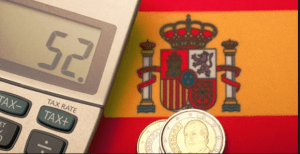
New tax rule change could mean the tax bill outweighs the benefits
Are you a UK Property Tax Expat?
The UK government has introduced various changes that make owning property in the UK a less attractive place for a UK Property tax expat. This comes from a tax rule change point of view.
Non-UK residents no longer escape capital gains tax on UK residential property. Stamp duty land tax has increased. Changes from next year mean that many landlords will pay more tax on their rental income.
As announced in the summer 2015 budget, a new measure will hit individual landlords. This will be done by restricting relief for finance costs to the basic rate of income tax (20%). This applies to interest on mortgages as well as on loans taken out to renovate property, buy fixtures and furniture etc. Tax rule change is frequent and are often missed by expats. Part of the service we provide at Harrison Brook is a regular review of your situation that can help you avoid expensive pitfalls. There are many other articles that I have posted on our site and may also be of interest to you.
The current tax rules on buy-to-let income
Landlords are able to offset their mortgage interest against rental income. This is a direct deduction against income. It is effectively a relief on your highest rate of tax. The tax saving is 20%, 40% or 45%, depending on which tax band you fall into once the rental income is added to your other income for the year.
So, let us say, for example, that you earn £10,000 a year from a buy-to-let property and pay mortgage interest of £5,000 per annum. You offset the mortgage interest and only pay tax on £5,000 (assuming no other expenses). If you are a basic rate taxpayer you save £1,000 in tax (£5,000 x 20%). If you are a higher rate taxpayer you save £2,000 in tax, and if you pay the 45% income tax rate you save £2,250.
New tax rule change starting April 2017
Starting from April 2017 this relief will be slowly removed over four years.
Ultimately, from April 2020, you will only be able to deduct 20% of mortgage interest as a tax credit. In the above example, your tax savings will be £1,000 (20% of £5,000), regardless of your income tax band.
To confuse matters, the tax rule change is being introduced over a transitional period. For the 2017/18 tax year, the deduction from property income will be restricted to 75% of finance costs, with the remaining 25% being available as a basic rate tax reduction. So if you are a higher rate taxpayer, you will then receive a deduction of £1,500 against your mortgage income (£3,750 x 40%) plus 20% of £1,250 as a tax credit. A total tax saving of £1,750.
For 2018/19, landlords will be able to claim 50% of the mortgage interest relief against the income (so £2,500 at your marginal rate of tax) plus 20% of £2,500 as a tax credit. A total tax saving of £1,500 if you are a higher rate taxpayer.
For 2019/20, the mortgage interest rate relief falls to 25%, plus 20% of £3,750 as a tax credit. So for higher rate taxpayers your tax saving will decrease to £1,250.
From April 2020 onwards, there is no deduction against mortgage interest and everyone will receive only 20% of the interest as a tax credit, thus making it more difficult if you are a UK Property tax expat.
Stamp duty land tax
Landords have also been affected by the new higher rates of stamp duty land tax.
Stamp duty land tax is charged on purchases of additional residential properties, such as for second homes and buy-to-let, in England, Wales and Northern Ireland. A different but similar tax applies in Scotland. It also applies if you live abroad and buy a property in the UK.
As announced in the 2015 Autumn Statement, the government is introducing higher rates. These apply from 1st April 2016 and are 3% in addition to the existing standard rates. The starting rate is therefore now 3% for properties under £125,000 (the first £40,000 is tax free), rising to 15% for properties over £1,500,000.
Capital gains tax
Do not forget that non-residents now pay UK capital gains tax when selling a UK residential property, making it more difficult for a UK Property tax expat to profit.
Prior to April 2015 you were exempt. And while the 2016 budget reduced capital gains tax rates, tax rates on property were excluded from this reform and remain at 18% and 28%.
For a UK Property tax expat, however, tax will only be paid on the gains arising from April 2015. If you are thinking of selling your UK property doing so now is likely to result in less tax than in some years’ time.
The new tax rules for rental income have been viewed as an attack on landlords – Chancellor George Osborne said that the fact that landlords are allowed to deduct their costs when calculating their tax on rental income supports landlords over ordinary homeowners and puts investing in rental property at an advantage.
If you are a resident in Spain and concerned about the tax liabilities on your UK property, talk to an adviser who can guide you on taxation in both the UK and Spain to establish what more tax-efficient investment opportunities are available to you in Spain. You can then weigh up your options and determine the best solution for you.
Get in touch today and see how we can help!
Steve Workman- Private Client Adviser
